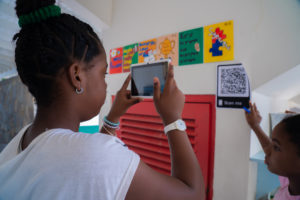Catholic School Board Members
Catholic Education was established in St. Maarten since 1890. The Foundation Catholic Education was established since 1970. To this date, (School year 2023/2024) the Foundation for Catholic Education has 6 primary schools, one (1) high school with an International Baccalaureate diploma program and an Early Stimulation program with a total of 1700 students under its care. Being proud of quality education for 133 years, the Board will continue to educate the total individual intellectually, spiritually, socially, emotionally and physically.
By the grace of God and his blessings we will always strive to nurture and preserve Quality Education and share this with multiple individuals (students) from all walks of life.

Mr. M. Halley
President

Mrs. M. Acuna Lopez - De Weever
Secretary

Mrs. I. Hodge
Treasurer

Mrs. A. Bute
Board Member

Mrs. C. Hodge
Board Member

Mrs. G. Richardson - Nicolaas
Board Member

Mr. C. Peterson
Board Member

Mr. P. Gumbs
Board Member
Executive Director & Staff
WELCOME! Welcome! to the website of the Foundation Catholic Education St. Maarten. We are honored to share our information with you.
The Foundation provides education according to Catholic principles and longstanding Catholic tradition. The Catholic identity is the foundation of our organization, culture, curriculum and teaching methods and what binds us together. Since we welcome students from all walks of life, we deem it necessary to provide all stakeholders, with information about our schools, the background and nature of Catholic education, our agreements, policies, regulations and our religious activities. Selecting a school for a child is a big decision in life.
Our committed and dedicated Board members and staff feel privileged in partnering with you. There must be a strong partnership and support between home, school and church. As partners, we share the obligation and we want you to know that we will do our utmost in carrying out our responsibilities. All students entrusted in our care will be educated holistically on the principles and values of the Catholic Faith.
Our leading principles are: Faith, Love, Modesty and Compassion, Unity and Discipline.
Faith: As we follow in the footstep of Jesus, we strive to give practical expression to our Catholic faith in the evangelization of our students.
Love: We acknowledge that our love of God calls us to love of self, love of neighbor, love of work, love of learning, and love of our schools in the way we take pride in all that we do.
Modesty and compassion: We seek to live in solidarity with others, letting our presence be a good example to our students and those with whom we work.
Unity: We come together to embrace our faith and share our values with the community. We are a welcoming Foundation which is open to others and embraces diversity. We expect others not to break our unity by respecting our faith, values and customs.
Discipline: We encourage positive behavior and do what is right at the right time in the eyes of all. We discipline with love and logic. We strive to see each person as equal in dignity and worthy of respect.

Mrs. Lilia Aventurin
Executive Director

Mrs. Jacqueline Greene
Superintendent

Mrs. Ingrid de Miranda
Executive Secretary

Mrs. Tanja Frederiks
Project Manager

Mr. Cres Pers
Maintenance Manager

Mrs. Dawn Davis
Head of House Keeping
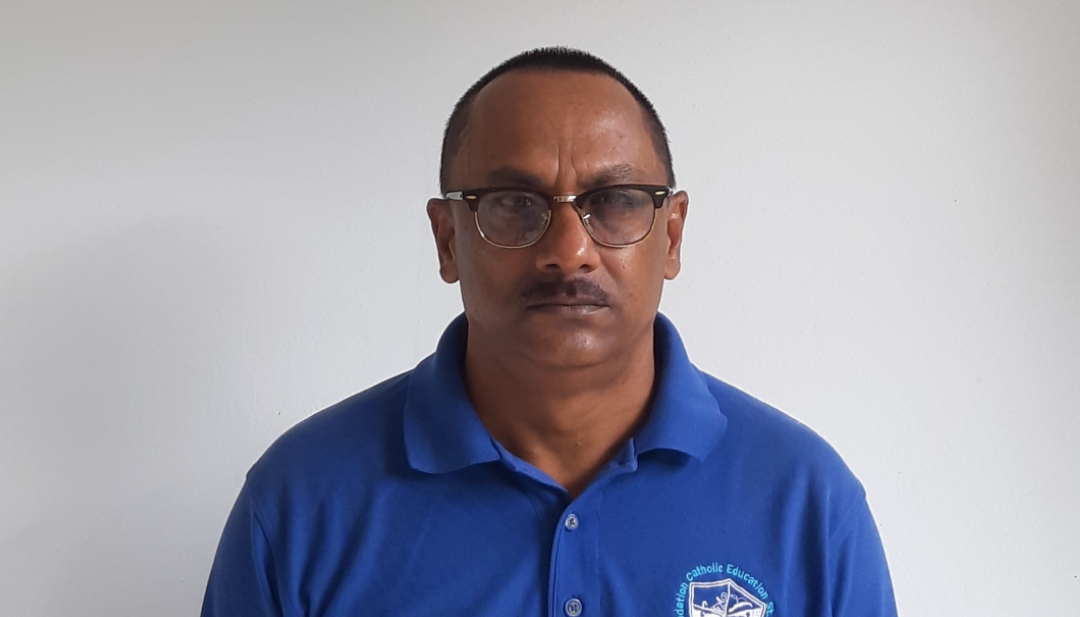
Mr. Ajit Persaud
Coordinator Veganic agriculture
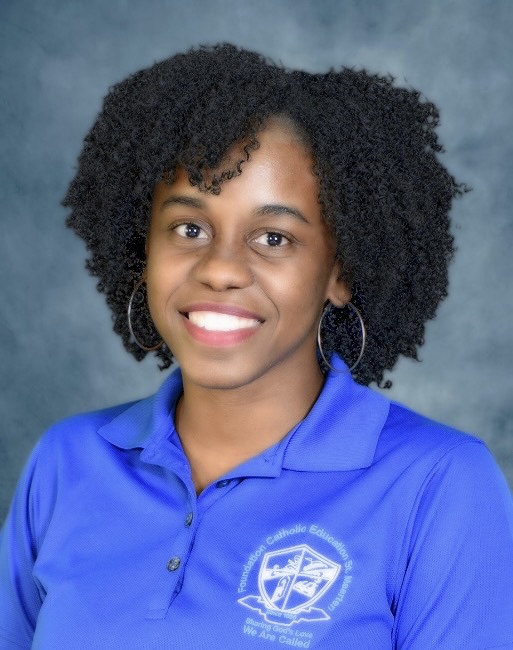
Ms. Jamila Oliver
Office & Finance manager

Mr. Kent McNamara
Application manager
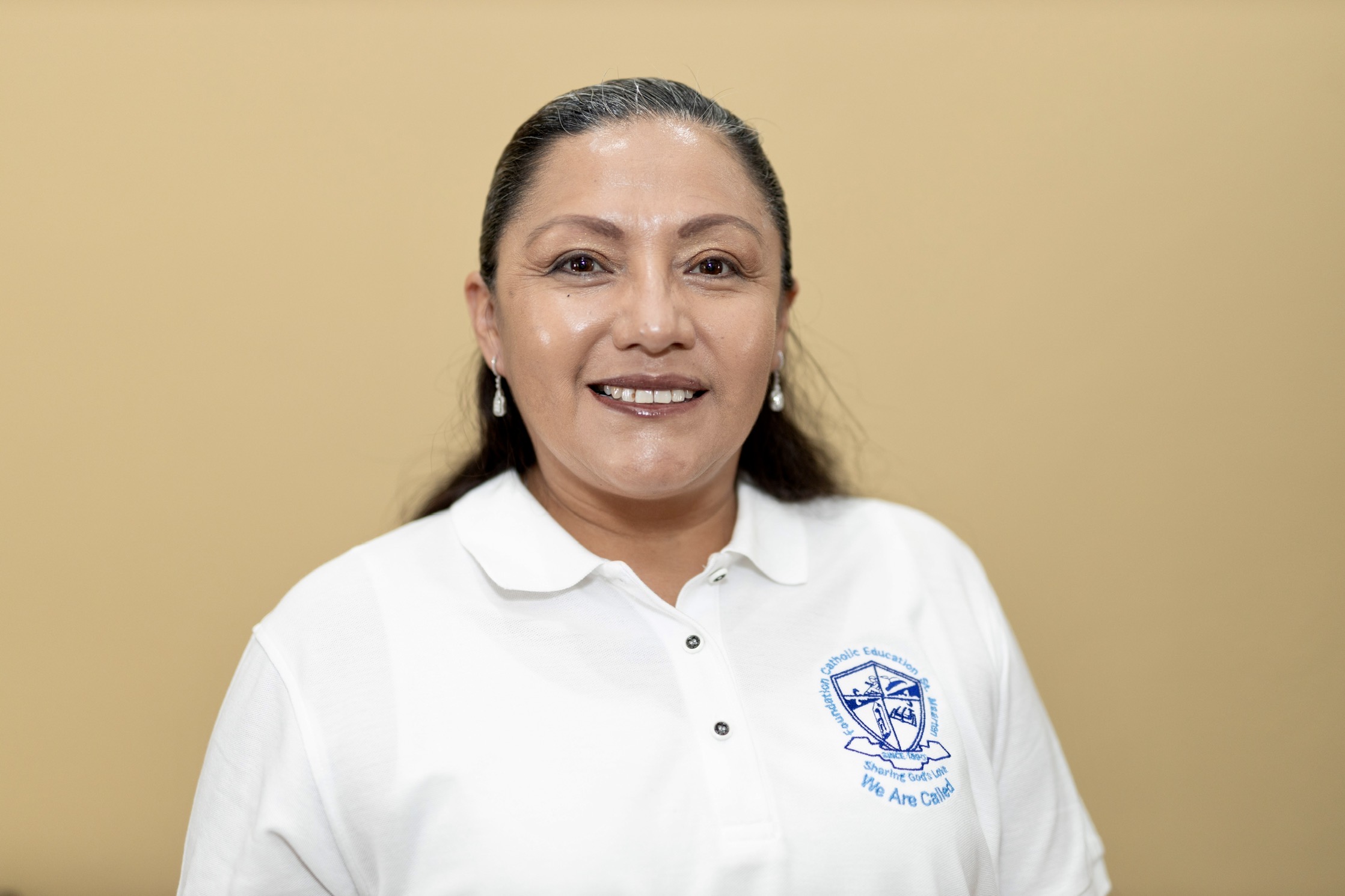
Ms. Carmen Ayala
Finance assistant
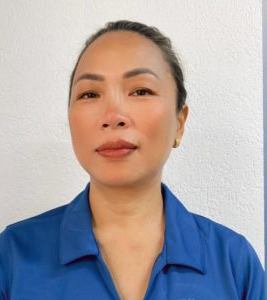
Ms. Priscilla Wirjosentono
HR assistant
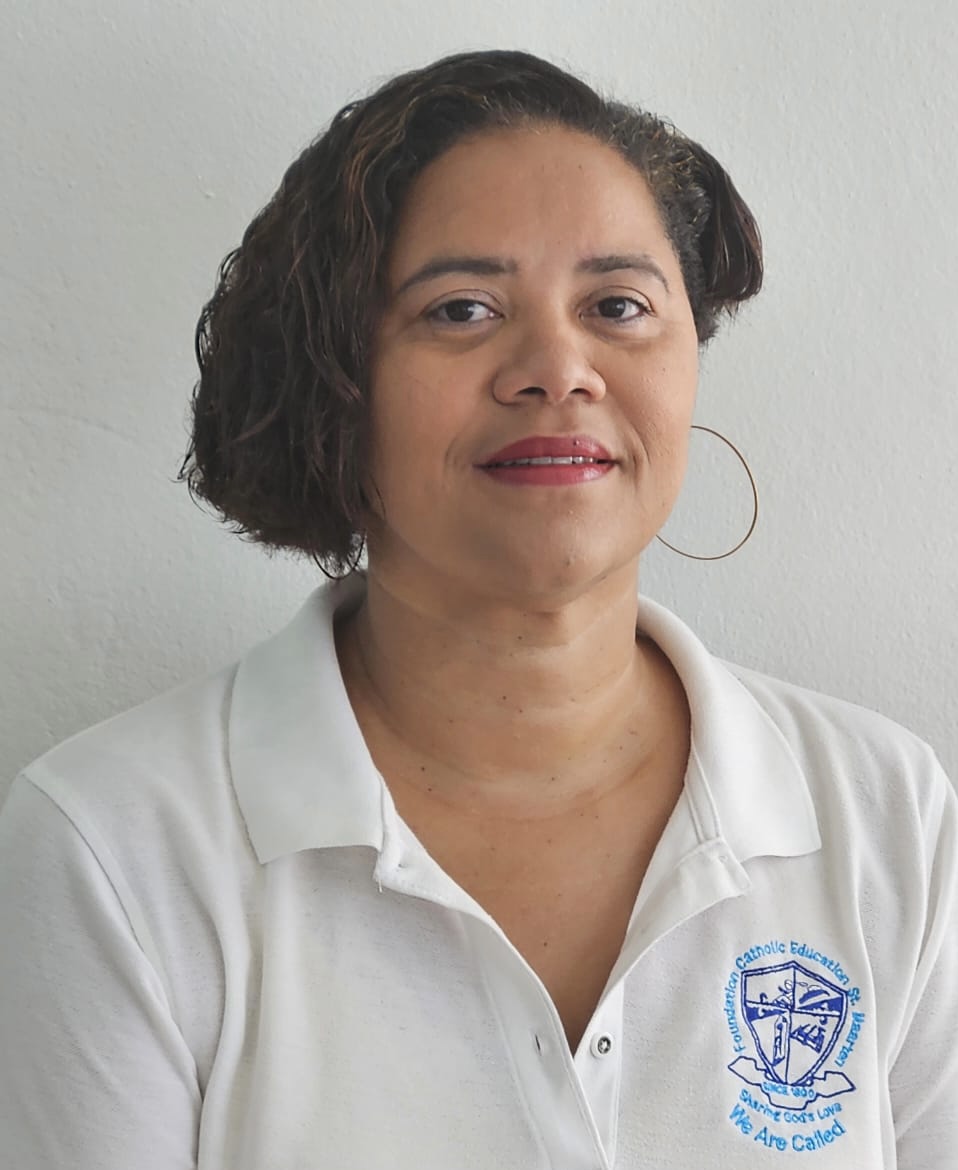
Ms. Gianne Wilson-De Weever
Curriculum Developer

Mr. Clifford Gumbs
IT technician
School Managers
Foundation Catholic Education is blessed to have at the helm of each of its seven Catholic schools a Distinguished, Dynamic and Caring School Manager.
Our School Managers carry out a diversity of roles throughout each day with such dexterity, ensuring a fluid progression of the day. These roles and responsibilities are aligned with various stakeholders on micro and macro levels. School Managers focus on conversations with love and logic, connected to the holistic development of their students. Leadership emphasis is on excellence and success, while keeping the greater vision insight. This is evident in the culture which is seen, spoken about and experienced in the uniqueness of each school. This they do out of a vocation for discipleship with this year’s theme: Call to worship, glorify and honor our Lord. Visitors and stakeholders are invited to visit the various school sites for information and exclusive enjoyment of each school’s educational journey.

Mrs. Samantha Beaton
Sr. Regina Primary School

Ms. Edmaira Jacobs
Sr. Borgia Elementary School

Ms. Anajanie Kariem Ganput
Sr. Magda Primary School
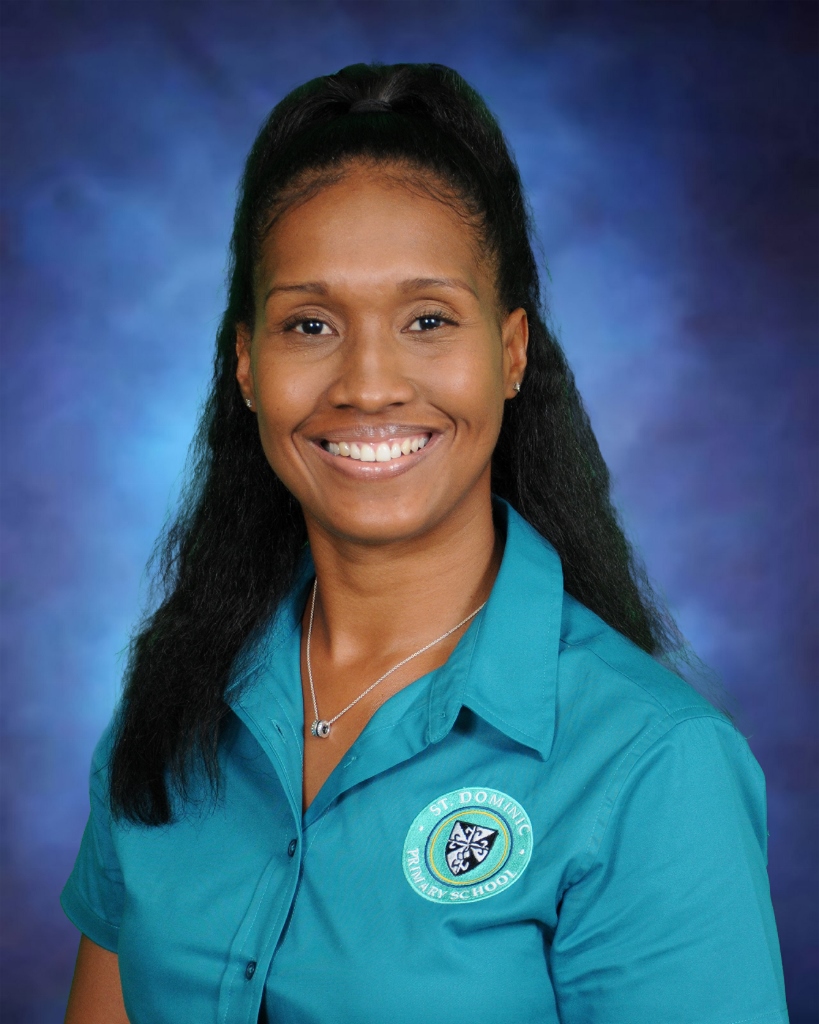
Ms. Shanirah Illidge
St. Dominic Primary School

Ms. Marie Richardson
St. Dominic High School

Mrs. Shaina Fernandes- Carneiro
St. Joseph Primary School
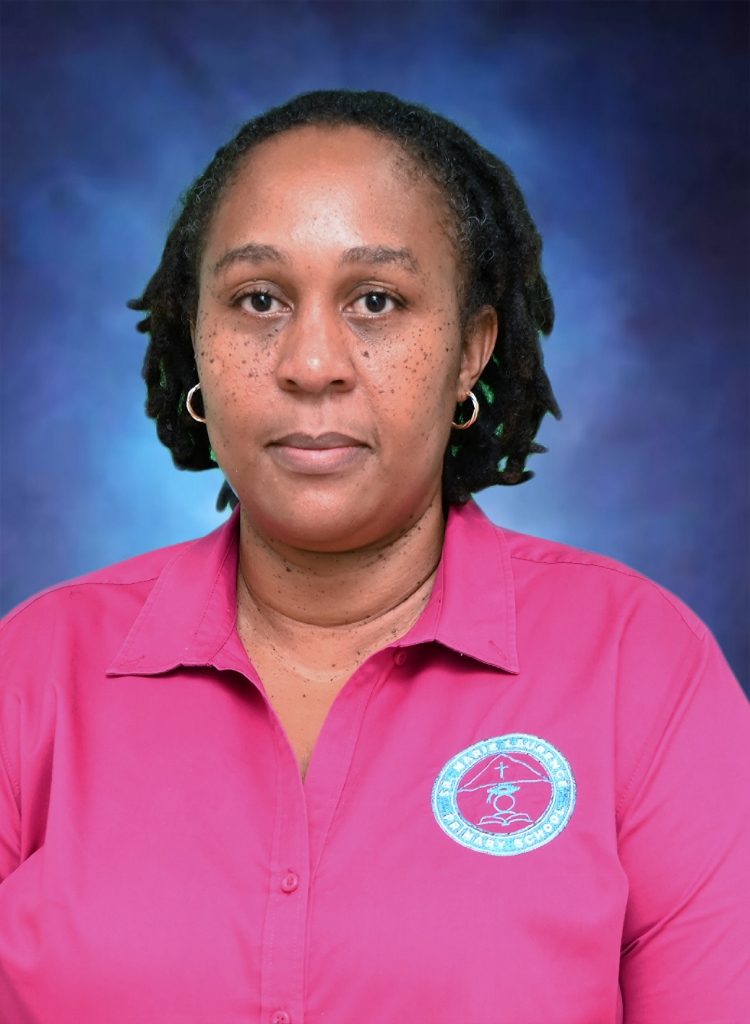
Ms. Amaris Slac
Sr. Marie Laurence School
Our Approach to Education and our Strategic Plan
By Lilia Aventurin-Hodge, director
Our structure reflects pedagogical tact, incorporating thoughtful and skillful educational strategies.
In the last thirteen (13) years, the Education system on St. Maarten has undergone many changes, challenges and innovations. To name a few:
Changes:
- The establishment of our own Ministry and the expansion of stakeholders since the new constitutional status on 10-10-10
Challenges:
- Yearly large turnover of teachers
- Many more children diagnosed with learning or/and behavior challenges.
- Covid 19-pandemic
Innovations:
- The continuous rapid growth of global education innovations and technology
We continue to be inspired by these changes, challenges and innovations. Having many conversations with the Board, school managers, teachers support staff, students and parents it gears us towards continuous strategic planning to fully live up to our vision and mission.
Every year, we reflect on our vision and mission and restructure our organization to reflect what we believe. The negative impact of our society deserves a structural approach. The changes, challenges and innovations are forcing our organization to consistently improve the guidance within our schools, to guarantee optimal development opportunities for school managers, teachers, support staff and most important, our students. It is imperative that our schools are recognized for having a good and safe environment and high-quality education.
With (new) staff in place, we continue to guide educators through adaptation of a growth mindset, in order to guarantee optimal development. We believe that this approach will decrease many behavioral issues that we have been dealing with over the years.
We continue visit, collaborate with impressive schools abroad, and exchange many ideas and thoughts. My motto is: Teaching is best done with love; once you have captured the heart, the mind opens.
To my surprise, I have witnessed an educational institution that built their school based on the context of that motto. The school emphasized on active, project-based, collaborative learning in multi-aged classes with a meeting area. Students were active learners, developing their artistic and academic skills through much of the school day. The school focused on habits of mind and work. Lots of emphasis was put on the emotional well-being of students. Teachers were fully involved and engaged in guiding their students. Any parent would want/like their child in this environment.
In our search and aspiration for a clearer vision on how a child learns, develops and forms optimally, we have held discussions with various experts, and the vision, in regard to taking action, started to unfold.
“Pedagogical Tact and Leadership has become part of our approach.”
In 2012, we started the process of implementation and organized a mini workshop for our teachers on this new concept, but it was only embraced by a few. In discussing this concept again in April 2013, we decided to introduce the concept structurally.
Pedagogical Tact is something that you feel. You cannot learn it. Yes, the theory is there, but your action comes from within you. You act out of love and logic, you act at the right moment, and you say and do the right thing in the eyes of your students. You are the best role model for your students. You look, say and do the best at all times.
Since 2013 the foundation creates opportunities for teachers and school leaders of our primary schools to continue the trajectory of Pedagogical tact and leadership through online training with Centrum Pedagogisch Contact (https://centrumpedagogischcontact.nl/academie/online-trajecten/online-traject-pedagogisch-tact/), school teams studying, practise and collaboration sessions and online conferences/webinars with experts from Centrum Pedagogisch Contact.
Implementation process
Implementation process
We recruited experts from Holland and organized the training in August/September 2013. During the first week of training on Board level, all disconnections or detachments visible within the schools that were causing students to have a low self-esteem, decreased involvement, and delinquent behavior, were analyzed. We came to the realization, that through values, behavior could be influenced. Respect and happiness can be accomplished within a good school. On board level, the Innovation Coordinators and my person took ownership of the concept and embraced the principals of Pedagogical Tact.
We had many conversations with the experts on what we want and what we were looking for. They guided our thoughts and actions in achieving this.
We, under guidance of the trainers, introduced it to School managers in August 2013. The goal was to guide them into the responsibility of taking ownership of the concept. We opened our session with the wonderful story about Mrs. Thompson. (This story is necessary read for educators, visit www.Mrs.Thompson) …
We then took our goal, vision and mission and decided to make it come alive within our schools.
Our goal, vision and mission read as follows:
The main goal of the Foundation for Catholic Education is to have the interest of education and upbringing at heart in accordance with the Roman Catholic Faith.
Vision/Philosophy: Our Roman Catholic schools are committed to quality education to meet the needs of the modern child.
Staff members of the Foundation Catholic Education are dedicated to the development of each individual student’s potential. Our schools aim to educate intellectually, spiritually, socially, emotionally and physically.
The student will be taught both the cognitive and the affective skills needed to become effective world citizens. The child will learn to discover knowledge on his/her own, to solve problems, to be a critical reader and thinker, to develop a healthy curiosity and to be open-minded.
The child will be encouraged to give witness to his/her faith by his/her own way of life.
Our aim is to form pupils with a social conscience, a desire for racial justice, compassion for those who suffer, and zeal for common goal.
The school assumes this responsibility in cooperation with the child’s primary educators, the parents, the community and the parish.
The Mission of the Catholic School is; Commitment to strive and motivate each child to achieve according to his/her ability, by creating a loving and privileged environment, where learning can be enjoyable, meaningful and a challenging experience.
We have focused on our goal, vision and mission by the following statements.
- We will embrace each and every one and guarantee optimal development.
- If one is unhappy, all are unhappy.
- BAN on exclusion.
For more information on our goal, vision and mission, please click the link below:
Our strategic plan is rooted in the development of innovative approaches.
Our approaches emanate from a progressive and holistic perspective on education, encompassing diverse pedagogical strategies and methodologies:
- Pedagogical Tact: This refers to the skillful and sensitive application of teaching methods to suit the individual needs of students. It involves adapting teaching techniques to address different learning styles and abilities.
- Pedagogical Differentiation: This involves tailoring instruction to meet the diverse needs of students within a classroom. It could include modifying content, tasks, or assessments to accommodate different learning paces and styles.
- Inquiry-Based Learning: This is an approach that focuses on active student engagement and critical thinking. Students are encouraged to ask questions, investigate topics, and explore solutions independently or collaboratively.
- STEAM Education: STEM stands for Science, Technology, Engineering, and Mathematics. STEAM adds an “A” for Arts, emphasizing the integration of these subjects with artistic creativity. It promotes interdisciplinary learning and problem-solving.
- PYP (Primary Years Programme): PYP is a framework within the International Baccalaureate (IB) program that focuses on developing the whole child. It emphasizes inquiry-based learning, global perspectives, and a balance between academic and personal development.
- Experiential Learning: This approach involves learning through hands-on experiences and direct engagement with real-world scenarios. It encourages active participation and reflection, helping students connect theory with practical application.
Foundation Catholic Education aims to strengthen a student-centered approach to education that fosters critical thinking, creativity, collaboration, and a deep understanding of concepts. By combining these methodologies, our educators are guided to create well-rounded individuals who are prepared to navigate the challenges of an ever-evolving world. This approach also aligns well with modern educational research that emphasizes the importance of active engagement application of knowledge.



